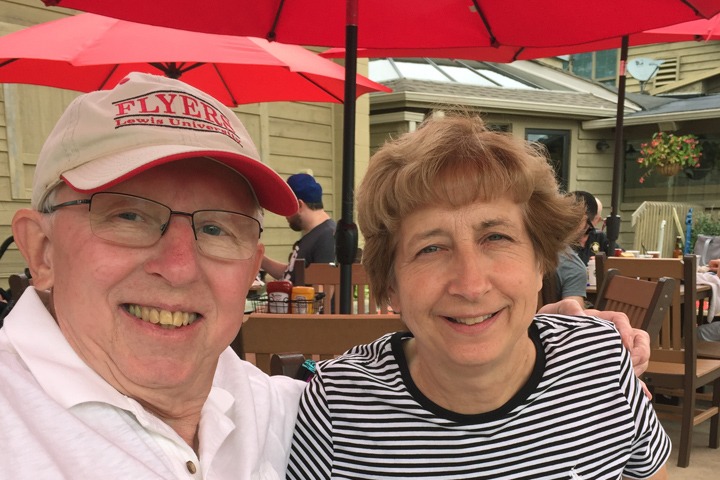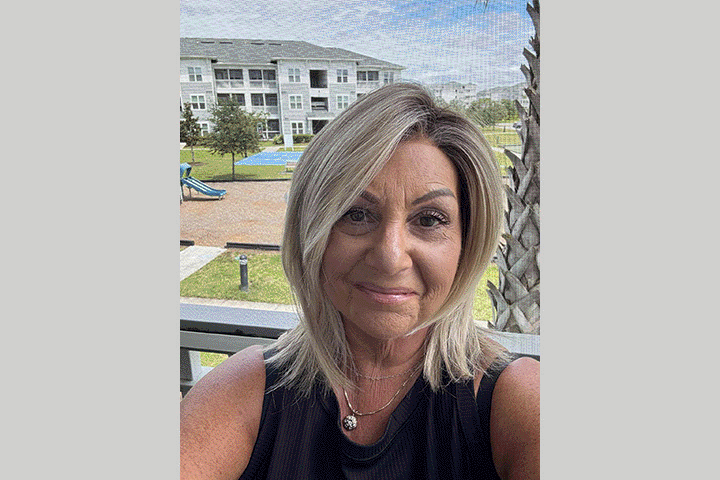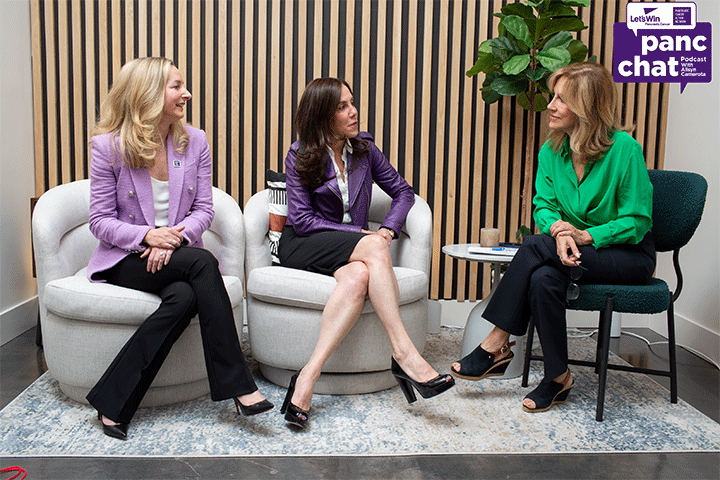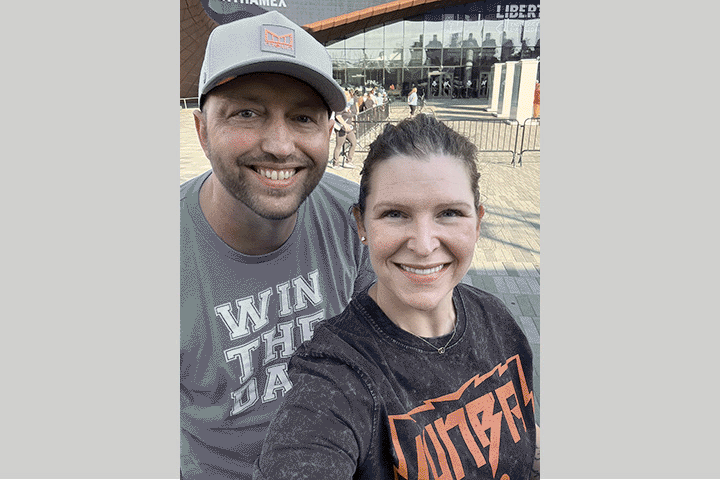Facing Ongoing Treatment for PNET

- Weight loss leads to PNET diagnosis
- Distal pancreatectomy to remove the tumor
- Recurrence and treatment with chemotherapy, then hormone therapy
- Embolization of more tumors
Early in summer 2019, I lost 10 pounds—without even trying.
At the same time, I was having pretty serious GI issues, which sent me in to see my gastroenterologist, Dr. Jeff Victor at Northwestern Medicine (Chicago, Illinois) . He said that it was likely irritable bowel disease (IBD), but wanted to do a CT scan just to “rule out anything bad.” And that’s what saved my life.
On August 8th, Dr. Victor called me to deliver the life-changing news: There was a tumor in my pancreas. The next step was to meet with Dr. Rajesh Pillai of Advocate Health Care (Elgin, Illinois), a gastroenterologist who conducted my endoscopy to confirm that the tumor was indeed cancerous.
Knowing how devastating pancreatic cancer can be, I had assigned myself to death. Not hopeful for my future, I told my wife that I wrote down my wishes for my funeral and placed it in a Bible I kept in my office.
Considering Treatment
Still, we knew we had treatment options, so we met with Dr. John Abad, a surgical oncologist, and my primary oncologist, Dr. Christopher George, both with Northwestern Medicine, in locations around Chicago. Things started to turn around when we learned more about my specific type of tumor. It was a stage III, well-defined pancreatic neuroendocrine tumor.
This diagnosis brought us hope. Because, as Dr. Abad said, if you’re going to have pancreatic cancer, this is the best one to have. Generally, these are a slower growing and less aggressive form. Surgery was an option, and it could possibly cure the cancer. He gave us hope, and we left his office feeling much better than when we went in.
September 9th, I went in for a distal pancreatectomy and splenectomy operation performed by Dr. Abad. It sure wasn’t going to be simple. The tumor had engulfed the portal vein going to my liver, so I would need a vascular surgeon to borrow a vein from my thigh to replace the portal vein. The surgery lasted more than six hours, but it was successful. I spent a week in the hospital recovering, with three of those days in the ICU. Although I wasn’t bedridden, for the next several weeks I took it easy.
Though they removed 80 percent of my pancreas and my lymph nodes were clear (meaning the cancer had not spread), microscopic bits of cancer remained. At that time, chemo or radiation was not recommended, so we stuck to a regimen of careful monitoring consisting of blood tests every two weeks and CT scans every three months.
Life with 20 percent of a pancreas is different. Not only did I need to take digestive enzymes (Creon) with every meal (the enzymes are as expensive as a monthly car payment), I also developed diabetes. My pancreas makes some insulin, but not enough to keep up with my body’s demand, and so I rely on daily insulin injections. I had to learn an entire new way of eating. There’s definitely no more beer or doughnuts in my diet. I can’t sit down and read the paper after breakfast, I have to get up and take a walk.
When Cancer Came Back
Follow-up CT scans for the next six months showed that everything was stable. After Easter 2020, I noticed some strange symptoms again. My pee was bright orange. My daughter told me that my skin and the whites of my eyes looked yellow. My doctor told me to go straight to the hospital.
It was a blocked bile duct. The culprit? Another pancreatic tumor. I had a metal stent placed in the duct, which fixed that problem. But we had a new one: Why did my cancer come back so quickly? Thank goodness for the blocked bile duct and jaundice, as there was a chance that the last CT scan missed the tumor completely.
That’s what sent us to The University of Chicago to speak with oncologist Dr. Chih-Yi “Andy” Liao and surgeon Dr. Xavier Keutgen. Both doctors specialize in gastrointestinal neuroendocrine tumors, and Dr. Keutgen is the director of the University of Chicago Medicine Neuroendocrine Tumor Center. During this time, I continued to see Dr. George as my cancer doctor “home base.” All doctors agreed that I should start oral chemotherapy with the drugs capecitabine and temozolomide. I took these for fourteen months and responded really well, with only occasional fatigue, constipation, and fever or chills. The chemo regimen shrunk the tumors and kept everything stable.
Despite that win, I couldn’t be on chemotherapy long-term because it can be really hard on your body, so we switched to another possible treatment, a once-a-month hormone injection called lanreotide. It was at this time that the doctors also noticed lesions on my liver, but did not know if they were consequential or benign. After three months of injections, we unfortunately got the news that the hormone shots did not keep my tumors at bay and those lesions on my liver indicated that the cancer had spread. Now, the most pressing concern was getting the liver tumors under control.
In December 2021, I underwent embolization of the liver tumors (an outpatient procedure that falls under the umbrella of interventional radiology) performed by Northwestern Medicine’s Dr. Jessica Andreoli. The goal of this procedure is to cut the blood supply to the tumor. By all accounts, this was a success. The liver tumors now appear “dead” in the middle with some scarring.
If the tumors return, we have another possible treatment: peptide receptor radionuclide therapy (PRRT), a molecular targeted therapy for neuroendocrine tumors that can treat both the pancreas and liver.
Life with Cancer
My cancer is incurable, but the goal is to keep the cancer at bay. Otherwise, I feel pretty good. I stay active wrestling with my two young grandsons, daily walks with my wife, cooking everyday dinners, and last year I took up oil painting. My wife, Carol, has been an amazing support and looks after me in every way. It’s so important to have an advocate by your side.
Throughout this cancer journey, I think I’ve come to enjoy life more. Every single day is valuable, and I’m able to take pleasure in the little things. Most importantly, this experience has brought me closer to God. This life is but a rehearsal for eternity with Him.





